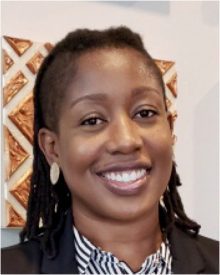Opportunity Faculty Fellows: Can more low-income and minority workers access middle-skill digital jobs?

There’s a mismatch in the employment market: Many “middle-skill” jobs in the digital economy pay a living wage of $15 an hour or more and don’t require a bachelor’s degree, but low-income and minority communities are underrepresented in these jobs.
Professor Tianca Crocker plans to investigate whether a lack of access to digital resources is holding back workers who could otherwise compete for those jobs.
“In Charlotte, low-income adult workers are often segregated in economically and racially homogeneous neighborhoods characterized by lack of access to digital resources such as broadband internet, which are tools for digital career readiness,” Crocker wrote in her project description. “Modern workforce development strategies anchored to digital training and resources can lift individuals out of poverty and into greater economic opportunities through digital economy careers.”
Crocker has studied poverty in her research. She said jobs like fiber optic technicians and network administrators, which can often be obtained with a certification instead of a four-year degree, offer a path out of persistent poverty.
“The digital economy is one of the fastest-growing sectors,” she said. “Why not look at this as an opportunity for low-income communities to really get a leg up? What are some new opportunities to really help people get ahead and break these intergenerational cycles of poverty?”
Many people who live in segregated low-income and racial minority communities don’t get exposed to such jobs through their social networks, and thus may not be aware of them or consider trying to get applicable job training.
“I think it’s a lack of information, a lack of cultural networks,” she said. “If you don’t have a software engineer in your family, what do you think the average software engineer does?”
Crocker will use a survey to gather data at the neighborhood level about the accessibility of digital resources in a racially and economically segregated Charlotte community. She plans to use mailers, door-knocking and community association contacts to get people to complete the survey. She hopes to gain insight into how people see the digital economy, and plans to gather data about residents’ digital skills and attitudes. Crocker will also map “the flow of digital economy information” through social networks.
“How do you reach these populations?” she said. “What’s the language, the verbiage, the pathways to reach populations that don’t have this information?”
– By Ely Portillo
